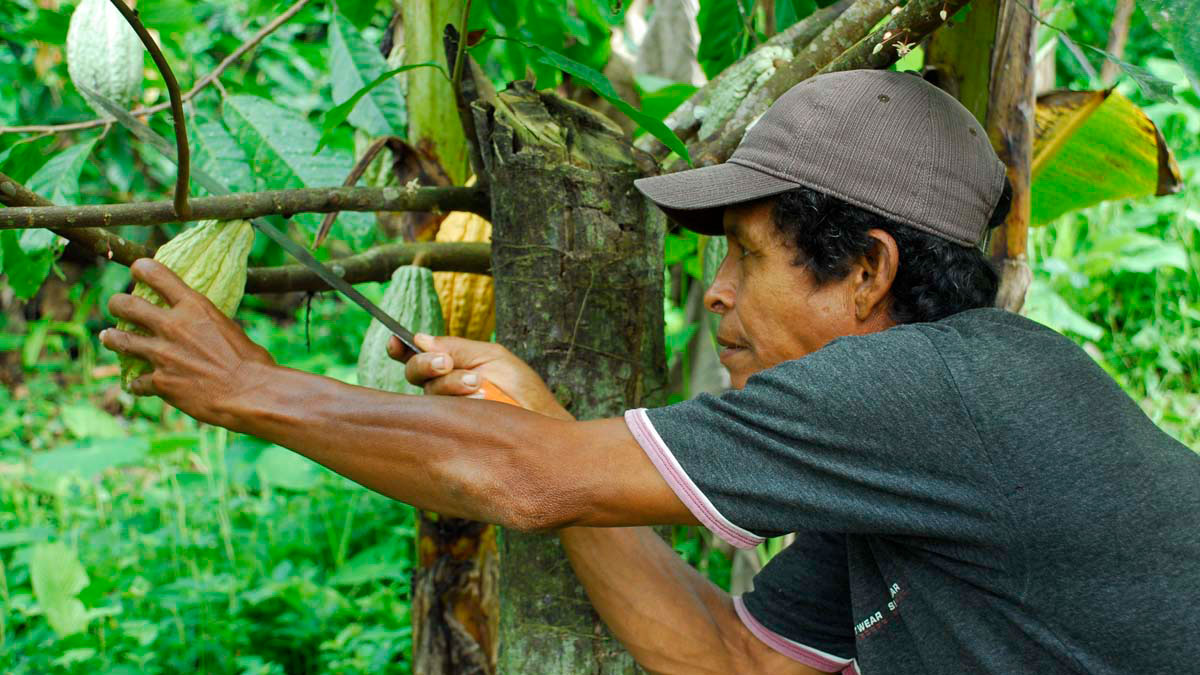
An estimated 23% of net global greenhouse gas emissions between 2007 and 2016 came from agriculture, forestry and other land-use and the largest source of CO2 emissions in this period was tropical deforestation.
Without rapidly reducing emissions from deforestation and unsustainable land use, the global climate and development goals will not be met. While the agriculture, forestry and other land-use (AFOLU) sector is a significant driver of greenhouse gas (GHG) emissions, it could also be one of the most powerful climate solutions. Over the past decade, the UK and Colombia have demonstrated pioneering leadership to tackle climate change and both countries have recognised the centrality of climate to economic growth. Colombia has long been an ally of the climate and environment agenda showing regional leadership by placing 53% of its Amazon region under legal ownership of indigenous forest-dependent peoples, among the world’s highest proportions of indigenous ownership of forests.
Territorios Forestales Sostenibles (TEFOS) is a flagship programme under the Foreign, Commonwealth and Development Office’s (FCDO) International Climate Finance (ICF). The £64m programme will provide grant funding to support the Government of Colombia (GoC) to tackle deforestation in conflict-affected areas, through three programme pillars:
- Strengthening land registry systems to incentivise sustainable land management,
- Strengthening the criminal justice system to tackle environmental crime in deforestation hotspots, and
- Creating and promoting innovative, sustainable economic opportunities for communities.
FCDO has identified monitoring, evaluation and learning (MEL) as core to the success of TEFOS. They want monitoring throughout the programme to inform evidence-based programme management and delivery and support learning. They also want the monitoring and reporting to provide oversight and guidance for the three pillars to work together coherently and effectively, and for robust evidence to inform the design of the third pillar of the programme. Following programme completion FCDO wants an impact evaluation to provide evidence of TEFOS’ impact and provide lessons for future inter-national forest and land use programmes.
We were selected to deliver this MEL work in 2021, bringing with us over 40 years of experience from across Tetra Tech of working in Colombia on land use, environmental crime, sustainable livelihoods and MEL. We understand how the technical assistance (TA) provided by TEFOS will build the capabilities of regional/local government and communities to change the way land is managed and reduce deforestation and greenhouse gas emissions; as well as the complexity and time lags involved. We are also very aware of the extent to which political economy, inequalities and conflict could affect the programme’s Theory of Change.
Results
One of the best ways to reduce deforestation in Colombia is by promoting sustainable livelihoods that give land users a profitable alternative to illicit and extractive activities. Through our evidence review – conducted by our TEFOS MEL team in 2022 – we found 12 possible value chains that could promote sustainable livelihoods. The review highlights opportunities, barriers and key success factors for interventions to support their development. Each option has its own characteristics and will be more appropriate in some geographies than in others. Often, it will also be sensible to support multiple livelihood options in the same area at once to reduce the risks of any single option.
At a glance
Location
Colombia
Implementation period
2021–2026
Client
Foreign, Commonwealth and Development Office, UK